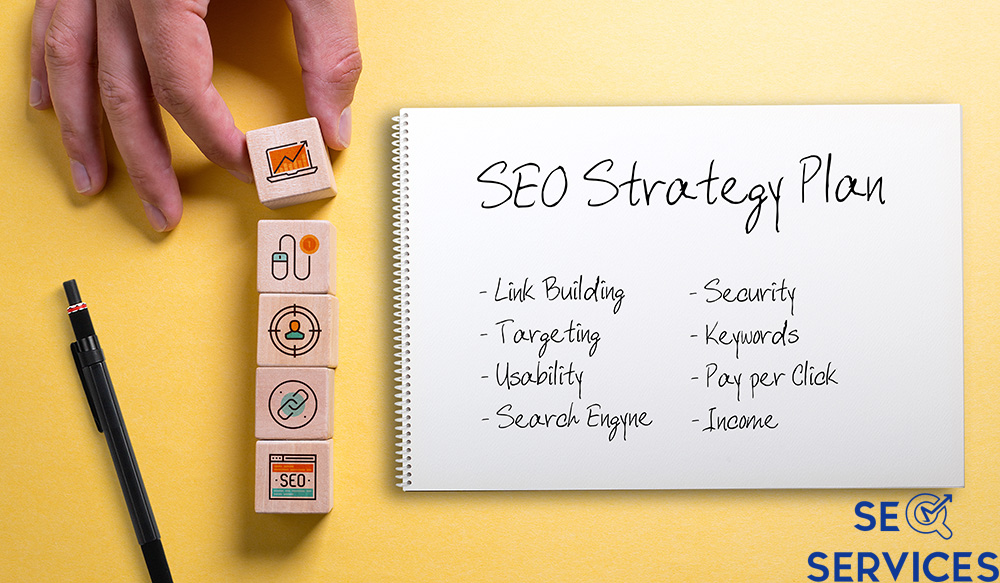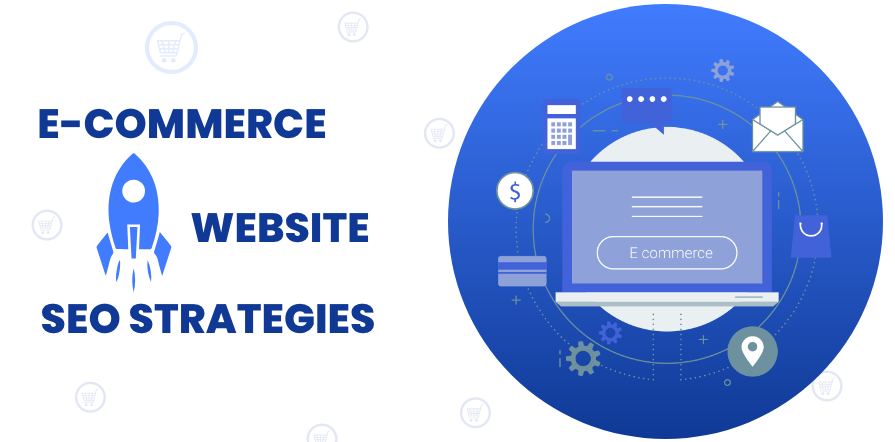Increasingly, E-Commerce websites are cropping up on the internet. Customers are hooked on making purchases on these online platforms. In this way, an E-Commerce company may be a lucrative online business for you. However, the key is to develop unique techniques to get your site to the top of the SERPs and bring in more clients on this competitive platform. SEO services can assist you in this endeavour.
SEO plays a key role in Ecommerce websites. Most people use search engines to find the product they need rather than going directly to an E-Commerce site. As a result, to make your E-Commerce website visible to the public, you must rank it among the top search engines. Therefore, you’ll need E-Commerce SEO services to develop a tactical plan for your company. This article will cover the best SEO strategies for E-Commerce websites.
What is E-commerce SEO?
E-commerce SEO helps online businesses achieve higher rankings in search engine results. Developing and optimising your website with quality content can improve the visibility and traffic of your business in search engines.
Therefore, the goal of eCommerce SEO is to optimise your site to generate more leads and conversions. As opposed to SEO for content-based websites, SEO for E-Commerce websites requires more than providing keywords and producing blog articles.
Why E-commerce SEO Matters for Your Business
Having a good SEO strategy is vital for e-commerce websites. Your website must rank higher than your competitors in search engine results to attract potential buyers. A solid SEO strategy can help you achieve this. Moreover, e-commerce businesses should emphasise search engine optimisation for both ranking purposes and customer acquisition.
Best SEO Strategies for Your E-commerce Business

Your E-Commerce SEO strategy will help customers find your products and services more easily. Let’s check out some of the most effective SEO strategies for eCommerce websites.
Research and Optimise Relevant Keywords

The most important aspect of eCommerce SEO is the use of keywords. Therefore, you should work professionally and attentively when researching keywords for your eCommerce platform. You should select keywords that are related to the services you provide. Before implementing them, you should consider the keyword’s search volume, cost-per-click, and user purpose.
You can also check out your competitors’ websites to find keyword ideas. Furthermore, long-tail keywords enhance conversion rates because they match user intent. You should also avoid stuffing your page with too many keywords.
Build a User-Friendly Site Architecture
The e-commerce website architecture describes your site’s navigation process and how you organise your website category and product pages. It would help make your website user-friendly for both consumers and search engines.
The basic rule of site architecture is that each product page should only require three clicks to reach from the homepage. Further, it gives product pages the authority they need since they link to the homepage.
On-Page SEO is Important
The most important aspect of an SEO strategy is on-page optimisation, which determines where a website will appear on search engine results. On-page SEO refers to optimising a product page and category page, ranking higher for specific keywords, and increasing relevant traffic and conversions.
eCommerce sites follow the same On-Page SEO principles as other websites, but there are a few additional areas to consider. Such as:
- Optimise your meta titles and descriptions.
- Implement Schema Markup.
- Keep URLs short and keyword rich.
- Link internal pages.
Speed Up the Loading of the Site
Your rankings and user experience will be better when your website loads faster. While the primary focus should be on the user experience, you should also consider how quickly your website loads. Take steps to ensure that your website loads faster than your competitors.
As long as you serve your content faster than your competitors, you don’t need to be moving fast. High-resolution images of your content will significantly slow down your eCommerce site’s loading time. By optimising images, you can reduce file sizes without compromising quality, which will help your website load faster.
Create Unique Descriptions for Products
Most people overlook this factor when it comes to eCommerce SEO. Your eCommerce website may have several products in the same category, making it difficult to write unique descriptions for every product. However, duplicate descriptions raise questions about content duplication, which affects your site’s ranking and results in less traffic and conversions rate.
Thus, writing a fascinating and unique description for every product becomes increasingly essential. You should also avoid copying descriptions from other sites since doing so will hurt your SERP ranking and credibility with your audience.
Create High-Quality Backlinks
Backlinks play a significant role in how search engines rank your website. With more high-quality backlinks, your site becomes more authoritative. You don’t have to struggle when it comes to finding backlinks for eCommerce sites. You can build links by guest posting on blogs related to your niche. It is a straightforward, white-hat strategy.
The other popular method for getting backlinks is to search for expired resources within your niche. Your only task now is to identify the sites that aren’t working and contact the person responsible for them with a replacement link.
Keep Your Site Secure
The security of e-commerce platforms is vital because they handle extensive amounts of data and perform numerous transactions daily. Several cyber threats against e-commerce platforms, including account hacking and leaking passwords, have caused customers to demand more secure sites.
Hence, you should have an SSL and HTTPS certificate on your e-commerce site to protect sensitive data. Since search engines consider your site’s security level when determining its rank on SERPs.
Optimise For Mobile Devices
The importance of optimising your website for mobile devices has increased over the last few years. So, your eCommerce store should emphasise the mobile experience instead of the desktop experience.
Google has announced for several years that they are shifting to a mobile-first index, which has an impact on eCommerce SEO strategies. That’s why Google gives more importance to your mobile site than your desktop site when ranking websites.
Avoid Broken Links
Your visitors should have a pleasant experience when they visit your website. If you clicked on a specific page, you were probably not expecting to land on a “Page 404 Not Found” page. So, it is a bad idea to have broken links on your website. Therefore, you should crawl your website frequently to look for 404 errors. If you have several broken links, it can be catastrophic for your business.
Add Some Customers Reviews
Customers’ reviews impact search engine rankings as they act as new content and engagement. Adding customer reviews to your eCommerce SEO plan can drastically improve the customer experience. Positive reviews on product pages can lead to better conversion rates.
According to research, over 90% of shoppers believe they are more likely to buy a product if it has reviews, even if the reviews are not 100% positive. Thus, it is to your advantage to give customers the chance to express themselves after making a purchase!
E-commerce websites can benefit from these SEO strategies to rank higher in the SERPs, resulting in more traffic and higher conversion rates. Optimising your online platform will help you to conquer the eCommerce business! Do not miss out on this opportunity!
You’re currently thinking about starting an eCommerce SEO campaign for your eCommerce business. Relax. We at SEO Services in London are a leading SEO company in the UK that can provide you with reliable and result-driven SEO services for your online eCommerce business. Call us or send an email for an appointment online.





